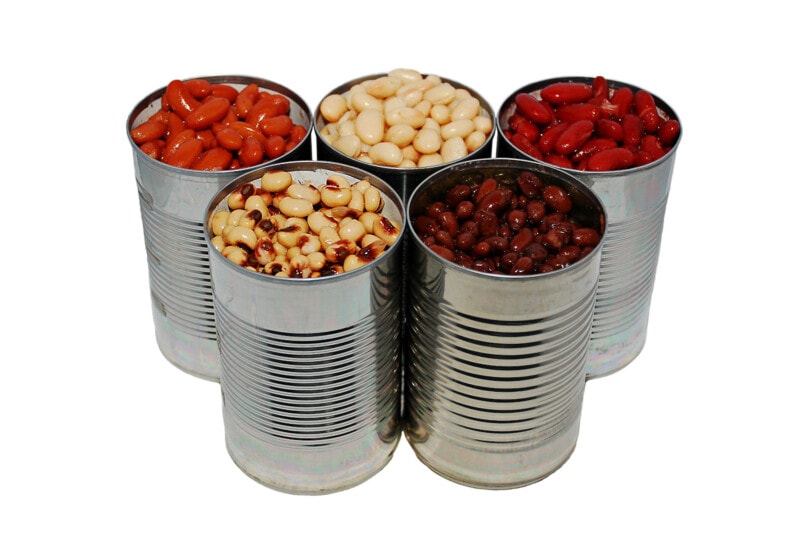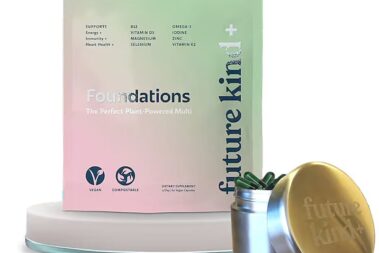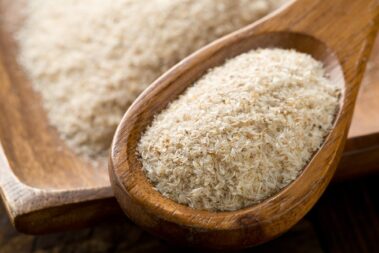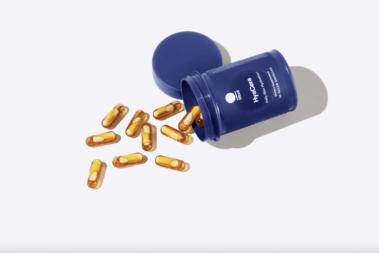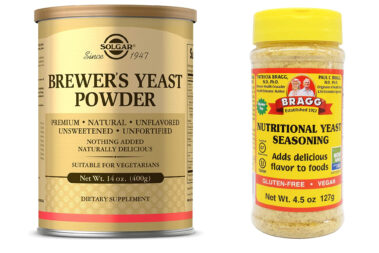Canned beans are a convenient ingredient you can include in a wide variety of meals. Plus, they’re affordable and keep for years in the cellar.
But are canned beans healthy?
We asked some nutrition experts to weigh in on this common question.
Table of Contents
Are Canned Beans Healthy?
Beans are well known for being a great source of vegetarian protein, an excellent source of fiber, and overall a nutritious addition to meals. But do these facts hold true for canned beans, which are subject to additional processing that fresh and dry beans aren’t?
Nutrients
When it comes to vitamin and mineral content, Trista Best, a registered dietician at Balance One Supplements, says canned beans can hold their weight in the nutrition department.
“Canned vegetables and legumes are beneficial for two reasons: nutrition and cost,” Trista says.
“They are less expensive than fresh and will not expire as quickly. They are also often just as nutrient-dense as fresh because they are harvested and processed (frozen or canned) at their peak.”
Beans, both canned and dry home-cooked, are packed with iron, folate, potassium, and magnesium.
They are also loaded with antioxidants which can help the body fight many diseases, including cancer, heart disease, and certain liver conditions.
Fiber
In addition to many vitamins and minerals, canned beans are also high in fiber. In particular, beans are very high in soluble fiber, which has different effects on the body than insoluble fiber, the type commonly found in vegetables and whole grains.
Soluble fiber is vital for controlling appetite and helping you feel full to avoid overeating. Fiber also supports healthy digestion and a robust gut biome, which in turn supports a strong immune response.
There’s also a wealth of evidence that diets high in fiber can help maintain normal blood glucose and reverse the development of type 2 diabetes. If you already have diabetes, adding legumes like canned beans to your diet can help lower blood pressure and protect your heart.
Protein and Amino Acids
A one-cup serving of beans provides about 15g of protein, which is about the same as a two-ounce serving of meat.
Protein is essential for building muscle and repairing and maintaining multiple systems within the body.
Canned beans are also a great source of many amino-acids—the building blocks of protein.
This is an especially important feature for those on fixed and restricted incomes, according to Trista Best.
“Beans are rich in protein, a macronutrient that can often be found lacking in the diet of those seeking to save money at the grocery store,” Trista says. “Beans are known for their protein content, but eating them along with rice is the best way to get in all nine essential amino acids.”
There are 20 amino acids total, but the human body is capable of making 11 of them on its own. The other nine must be obtained through diet.
While all beans contain these nine amino acids in varying amounts, soybeans are the only legumes that contain all of them in significant quantities. For vegetarians, the best way to assure you get all these essential amino acids is to eat your canned beans with whole grains, which contain high amounts of the amino acids many beans lack.
Sodium
While canned beans contain about the same amounts of protein, fiber, and other nutrients as home-prepared and fresh beans, there is one area where they are inferior.
Canned products, and especially canned beans, tend to be very high in sodium. Since humans generally have no problem getting their daily requirement of this nutrient, eating foods high in sodium can actually cause health problems such as hypertension and kidney disease.
Megan Wong, a registered dietitian with AlgaeCal, gave us some great advice for dealing with this potential issue.
“When choosing canned beans,” she says, “keep an eye out for added salt. This is when canned beans can become less nutritious than cooked dried beans. Luckily, there’s a simple fix for this! Look for labels that say No Salt Added or Low Sodium when shopping for canned beans.”
Jana Mowrer, a registered dietician and nutritionist, certified diabetes education specialist, and founder of HealthWins Coaching and Consulting, had some additional pointers:
“Make sure whatever brand or variety you prefer is low sodium with no added sugar. If needed, drain and rinse canned beans to reduce the sodium even more.”
What Is the Healthiest Canned Bean?
Because all beans are high in fiber, protein, and various nutrients, it’s difficult to name just one to be “the healthiest canned bean.” There are many great choices available.
Canned lentils have the lowest calories of all popular beans. They are loaded with fiber and perfect for those watching their weight. They also have the most folate.
Soybeans contain all nine essential amino acids and have about twice as much protein as the average bean. This does, however, make them more calorie-dense than the typical legume.
Of the more traditional bean varieties, black, kidney, garbanzo, pinto, and navy beans are all fat-free and make great choices for those looking for a nutritious, protein-rich addition to their meals.
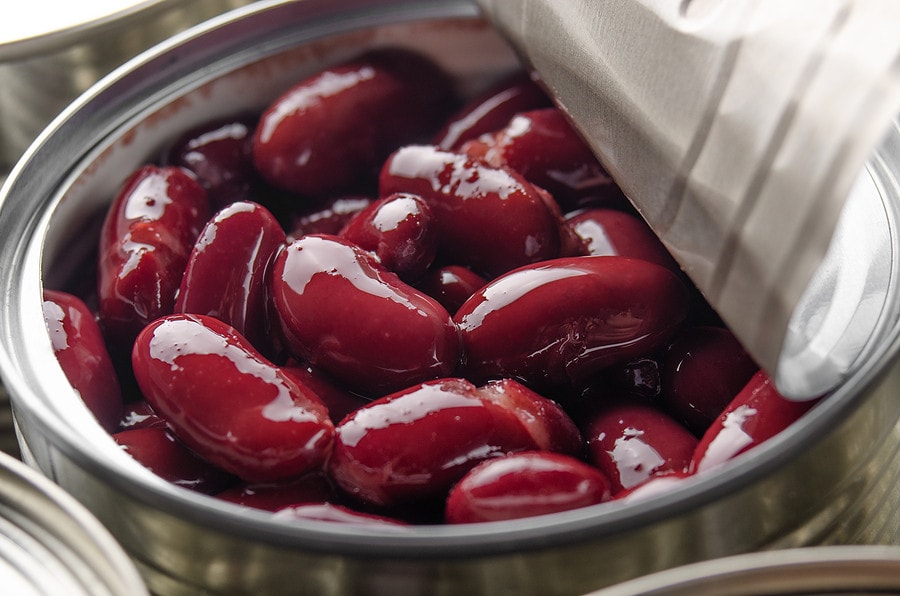
Are Canned Beans Already Cooked?
As part of the processing needed to safely can beans for a long shelf life, canned beans must be cooked prior to shipping. Typically, they are blanched before being added to the cans, then the cans are cooked at high temperatures in a pressure cooker to sterilize them.
This process cooks the beans at the same time.
Since it takes quite the time commitment to soak and cook dried beans at home, this fact is one of the reasons most people prefer canned beans.
Canned beans don’t need to be soaked or cooked before you add them to your meal. They only need to be heated thoroughly. With this easy-addition, you can make a wholesome, healthy family meal in less than thirty minutes.
Canned beans cost two to three times more per serving than dry beans, on average. So, if you have the time to cook your own, it will save you money to purchase uncooked bagged beans.
They don’t need to be boring either. With a little extra prep, you can make canned beans taste great.
Do You Need to Rinse Canned Beans?
This answer often comes down to the recipe you’re following.
Some bean-based recipes require you to save the aquafaba, or cooked bean water, from homemade beans or to include both the beans and juices from canned beans.
However, most recipes are only concerned about the beans themselves. In this case, rinsing the beans well in the sink is best not just for the recipe itself, but also for your health.
Rhyan Geiger, registered dietician and owner of Pheonix Vegan Dietician, says rinsing your canned beans will reduce the total sodium by roughly 40%.
If you are unable to find low sodium or no salt added beans, then it may be worth rinsing them regardless of what your recipe recommends.
More FAQ
Is it OK to eat a can of beans every day?
Yes, it is just fine to eat a can of beans every day, assuming you’re tracking your sodium intake and not exceeding recommended amounts. Of course, it would be healthier to eat homemade beans every day, but canned beans are a good second choice.
Are canned beans highly processed?
No, canned beans are minimally processed. They are exposed to high heat, but so are most of the cooked foods we eat.
What are the disadvantages of canned beans?
Some canned beans have an excess of added salt. Others may have other added ingredients that are less than healthy, such as nitrates, nitrites, and sugar.
Our Favorite Canned Bean Recipes
Now that you know that canned beans are A-okay to eat, here are some of our favorite recipes that include canned beans.
- Vegan White Bean Chili – This delicious chili uses canned cannellini beans.
- Vegan Black Bean Burgers with Oats – You’ll need two cans of black beans for this amazing homemade vegan burger.
- Scrambled Tofu Breakfast Burrito – This delicious vegan breakfast burrito is packed with protein thanks to tofu and kidney beans.
- Zesty Quinoa with Black Bean & Tomato – This easy dinner is made even easier with a can of black beans.
If you love these recipes, don’t forget to sign up for our newsletter. We’ll send you more articles and recipes like these each week.
The Final Scoop on Canned Beans
All in all, canned beans are just as healthy for you as dried beans cooked at home. This is true in terms of nutrition, fiber, and protein content.
The biggest difference is that canned beans can have a lot more salt. To avoid any potential issue here, make sure you buy low sodium canned beans or rinse your regular canned beans well before using them.
Jana Mowrer sums it up well:
“Beans are only healthy if you consume them, so eat whatever form makes it easier for you to add them to your diet. Select whatever variety of beans that you like most because they are all low in fat, high in fiber, and great for heart and gut health. Ohhhh and bonus! They are cheap so they make healthy eating even more cost-effective and attractive.”
What’s your favorite kind of canned bean? Let us know in the comments section below.
- How to Pick the Perfect Watermelon For a Sweet Summer Treat - April 10, 2024
- Future Kind’s Foundations: A Multivitamin Made for Vegans - December 5, 2023
- Does Nutritional Yeast Go Bad? - November 28, 2023

